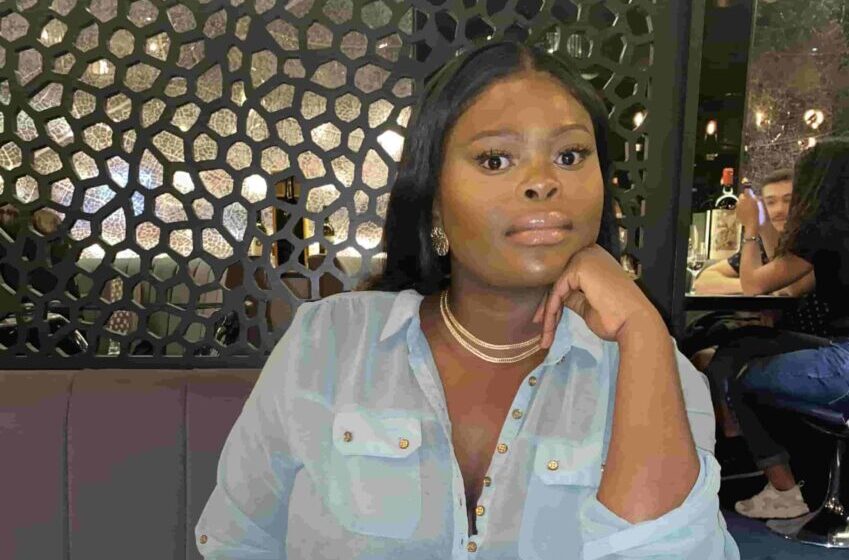LAST YEAR, Stephanie Ozuo was diagnosed with Attention Deficit Hyperactivity Disorder (ADHD). She says that not being diagnosed earlier seriously impacted her career and mental health.
In her opinion, many barriers prevent ethnic minorities getting diagnosed. Now, she’s made it her life’s mission to empower others like her.
Her own diagnosis came about almost by chance. One of her 20,000 Twitter followers, was also a junior doctor. They suggested she might have ADHD. Ozuo searched the condition online and started her journey to diagnosis.
She explains: “I did a few online tests, I spoke to family and then I tried to go to my GP.”
Unfortunately, her GP wasn’t helpful. He dismissed her ADHD concerns and wanted to focus on her depression. While he may have been well-intentioned, for Ozuo it was a misstep.
She adds: “When unchecked or untreated disabilities manifest in your life, you can develop a mood disorder.
“But that doesn’t mean you are depressed or anxious, it could be due to the way that untreated disability is affecting your life.”
Ozuo thinks it’s important that Black people advocate for themselves in medical settings. She advises that others in her position take tests online, print them out and show them to GP’s when asking for referrals. Eventually, a female doctor made the referral that she needed.
My life had reached a point where I literally couldn’t survive another two months
Stephanie Ozuo
“But then I got a letter saying there was a two year waiting list,” she explained.
“So I just went private. Once I paid, I literally got diagnosed within two days.
Breaking point
“For me, I’d got to a point where I needed that diagnosis very quickly because my life had reached a point where I literally couldn’t survive another two months.”
Since she has shared her diagnosis publicly, other young, Black people people with large online followings have publicly shared their own diagnoses, including writer and broadcaster Chanté Joseph.
Though there’s a lack of awareness about ADHD in adults across the board, there does seem to be a worrying trend of Black people getting diagnosed late.
“People, women and minorities are being diagnosed in their twenties and in their thirties, even in their fifties as opposed to other groups who get it picked up during childhood or in school,” she says.
“It could mean that young, Black children are not getting the help they need because their behaviour is being criminalised.”
An undiagnosed disability to prison pipeline?
She talks of an untreated disability to prison pipeline. According to the journal BMC Psychiatry, around 25% of the prison population also have ADHD.
A lack of proper neurodiverse diagnoses may be wreaking untold damage on our communities. Hyperactive ADHD is the type we have all probably heard of. You may remember a classmate who just could not keep still.
She adds: “I was speaking about it on Twitter, and I had Black men reply and say they had been in and out of behavioural units all their life, and just recently got diagnosed with Asperger’s at the age of 30.”
For Black women, the challenges are slightly different, according to Stephanie. Inattentive ADHD is where a person may struggle to focus on tasks.
Ozuo thinks women with this condition may be dealing with a lot of shame, and think they have deep character flaws, rather than an undiagnosed disability.
It’s important to note that some people have a mixture of both inattentive and hyperactive ADHD.
I’ve had people tell me that before they knew they were diagnosed they just thought they were cursed.
Stephanie Ozuo
Cultural concerns
Cultural barriers are another factor that causes problems. Some Black parents are very weary of a white education system putting labels on their child.
“There are adults who are struggling, then finding out 20 years later that their parents knew about it all along.
“I’ve had people tell me that before they knew they were diagnosed they just thought they were cursed. They thought their whole family was cursed.”
Around a year after her own diagnosis, I asked Ozuo how she is managing her symptoms. She talks about meditation, medication and self-care.
“But I’m still learning to manage,” she admits.
“It’s not like diabetes where you can just take drugs.”
Ozuo is running a free workshop to help people with ADHD better manage their symptoms in their careers. You can sign up here.
You can find out more about ADHD here.
If symptoms of ADHD are causing you mental distress, you can call Samaritans for free at any time on 116 123. You can also send an email to [email protected] and you will get a response within 24 hours.
Interview has been edited for brevity and clarity.


Comments Form